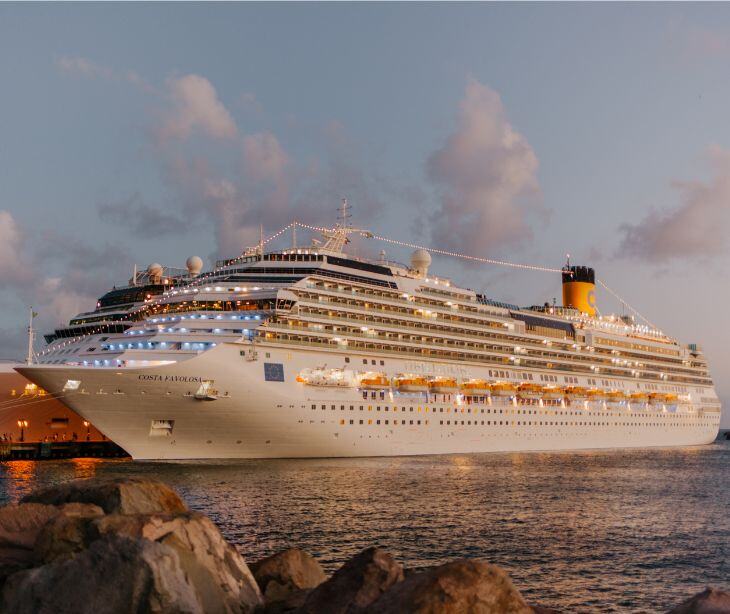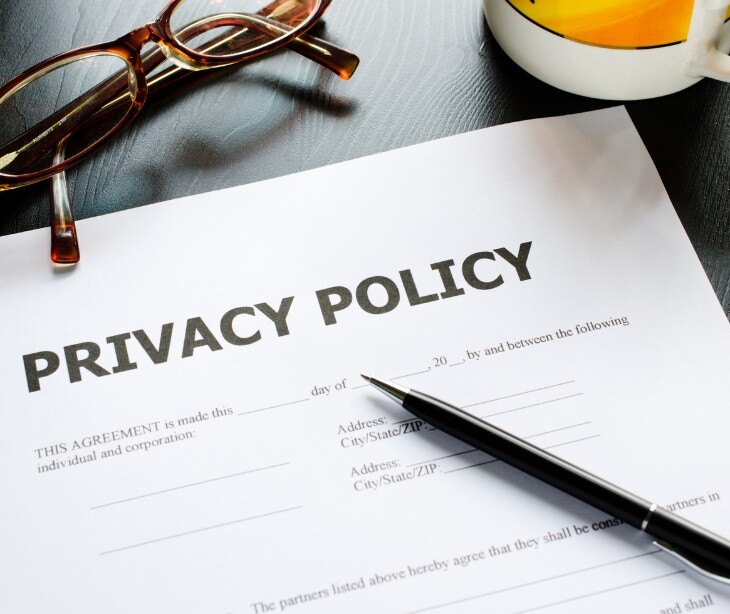4 min read
Do cruise ships have to comply with international data privacy laws?
Gugu Ntsele Feb 22, 2025 3:59:40 PM

Cruise ships must comply with international data privacy laws based on where they operate, collect passenger data, and process transactions, meaning they must navigate different regulations when handling sensitive passenger information. Since ships move across jurisdictions, they are subject to both flag state laws and territorial waters laws, requiring them to manage overlapping compliance obligations.
The patchwork of international data privacy laws
Cruise ships operate in a global environment, potentially collecting data from passengers representing different nationalities while sailing through multiple territorial waters. This creates a compliance landscape that includes:
- GDPR (European Union): The gold standard of data protection that applies to EU citizens' data regardless of where it's processed, requiring explicit consent and giving individuals extensive rights over their data.
- HIPAA (United States): Health Insurance Portability and Accountability Act governing protected health information with requirements for securing medical data and limiting its disclosure.
- LGPD (Brazil): Brazil's data protection framework modeled after GDPR that establishes rules for processing personal data and creates a national data protection authority.
- PIPEDA (Canada): Canada's federal private sector privacy law requiring organizations to obtain consent when collecting, using or disclosing personal information and giving individuals the right to access their personal data.
- POPIA (South Africa): Protection of Personal Information Act establishing eight conditions for lawful processing of personal information, including accountability, processing limitation, and security safeguards.
- Various APAC regulations: Including Japan's APPI which requires prior consent for data transfers, Australia's Privacy Act establishing principles for handling personal information, and Singapore's PDPA governing collection, use, and disclosure of personal data.
The flag state principle vs. territorial waters
- Flag state jurisdiction: According to Cruise Lines International Association, “The country or Flag State where a cruise ship is registered must make certain that registered ships meet all international requirements. Flag States also inspect ships on a regular basis to ensure compliance with both international and national requirements.”
- Territorial waters jurisdiction: The Cruise Lines International Association further states that, “Any country whose ports or waters are visited by a cruise ship has full authority to make sure that it follows international, national, and local regulations. Specifically, Port States inspect and enforce compliance with applicable international and domestic laws and regulations.” For example, A Bahamas-flagged ship sailing in EU waters with EU passengers must address both Bahamian laws and GDPR requirements.
HIPAA considerations for cruise ships
HIPAA presents specific challenges for cruise ships that cater to U.S. passengers or dock at U.S. ports:
- Covered entity status: Onboard medical facilities may qualify as "covered entities" under HIPAA if they transmit health information electronically for claims, billing, or referrals
- Business associate relationships: Cruise lines working with U.S. healthcare providers for evacuation services or telemedicine may be considered business associates
- Protected health information (PHI): Special handling requirements for passenger health data collected during:
- Pre-boarding health screenings
- Onboard medical visits
- Medical emergency response
- Accessibility accommodation requests
- Breach notification requirements: HIPAA's strict timeline for reporting unauthorized disclosures of health information
Even non-U.S. flagged vessels must consider HIPAA compliance when:
- Marketing specifically to U.S. passengers
- Operating regular routes to U.S. ports
- Accepting U.S. health insurance for onboard medical services
- Transferring patients to U.S. medical facilities
When international privacy laws apply to cruise ships
Cruise lines must comply with international data privacy laws when:
- Collecting passenger data during booking (often through websites targeting specific regions)
- Marketing to residents of countries with strong privacy laws
- Docking in ports where local privacy laws apply
- Processing payments through financial systems subject to privacy regulations
Types of data collected on cruise ships
Cruise ships collect personal data, including:
- Passport and identification information
- Credit card and payment details
- Health information (including COVID vaccination status, allergies, and medical conditions)
- Biometric data (facial recognition for embarkation/debarkation)
- Location data through key cards, wearable devices, and ship apps
- Consumer preferences and purchase history
- Photos and video surveillance footage
Practical compliance challenges at sea
Cruise lines face challenges implementing global data privacy compliance:
- Cybersecurity risks: As the International Journal of Core Engineering & Management notes, "The cruise industry is a prime target for cyberattacks for various reasons. First of all, its onboard and shore-based network involves many systems that, between themselves and the passengers they store their data on, build a complex analytics ecosystem to ensure navigation and all things that can occur at sea."
- Target for threat actors: The same journal highlights that "human nature leads cybercriminals to believe that these systems handle sensitive information, such as passengers' identification and payment details, rendering them appropriate targets for ransomware attacks, phishing attacks, and data breach breaches." These threats directly challenge compliance with breach notification requirements across multiple jurisdictions.
- Catastrophic consequence: The journal concludes that "such attacks' catastrophic consequences are very high—they can cause severe operational disruption, financial loss, and tarnish the reputation."
- Limited connectivity: Intermittent internet access can complicate real-time compliance efforts.
- Multinational staff: Crew members from dozens of countries need consistent privacy training.
- Emergency protocols: Balancing privacy with safety during maritime emergencies.
- Third-party vendors: Managing compliance for shops, spas, and entertainment providers onboard.
- Overlapping health privacy regulations: Reconciling HIPAA with GDPR and other health-specific privacy rules.
Consequences of non-compliance
- GDPR fines can reach €20 million or 4% of global annual revenue
- HIPAA penalties range from $100 to $50,000 per violation (with annual maximums of $1.5 million)
- Reputational damage
- Potential port access restrictions
- Class-action lawsuits from affected passengers
- Regulatory investigations in multiple jurisdictions
Real-world consequences: The Carnival Corporation data breach settlement
The 2019 Carnival Cruise Line data breach exposed sensitive personal information of approximately 180,000 employees and customers, resulting in a $1.25 million settlement with 46 state attorneys general. Despite discovering the breach in May 2019, Carnival delayed public disclosure until March 2020, demonstrating critical failures in data management, breach response planning, and data governance that allowed hackers to access employee email accounts containing unprotected sensitive information including Social Security numbers, passport data, and health information.
Beyond financial penalties, the settlement mandated comprehensive privacy improvements including a formal breach response plan, email security training, independent security assessments, and enhanced data practices. As former Pennsylvania Attorney General Josh Shapiro noted: "When personal data is exposed to bad actors, it's essential that consumers are notified as quickly as possible. Added delays increase the possibility of that personal data being used for nefarious purposes." Connecticut Attorney General William Tong added: "Storing large amounts of information in unmanageable formats, such as email, does not excuse delays in notifying state attorneys general or impacted individuals about a breach."
FAQs
How can cruise lines ensure data privacy training for multinational staff?
Cruise lines implement standardized privacy policies and regular training sessions to ensure compliance across diverse crews.
How can third-party vendors contribute to cruise ship data security?
Onboard shops, spas, and entertainment providers must follow cruise line privacy policies and security protocols to protect passenger data.
How can cruise ships balance data privacy with emergency response?
Medical and security teams follow strict protocols to ensure data is used appropriately while prioritizing passenger safety.




